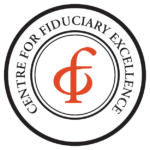Managing Newfound Wealth
As a generation of Americans grows older, a considerable amount of personal wealth is transferring to younger generations by way of inheritance. Other ways wealth can be transferred is through business or property sales, settlements, insurance claims, etc. A trillion dollars is expected to change hands by 2026. Regardless of how newfound monies arrive, it is important to be prepared to handle it appropriately. Here are a few suggestions:
Take Stock
Get a clear picture of what has been acquired. Even if an heir has experience handling wealth, it may still feel like there is all the money in the world. It is helpful to gain an understanding of how much is needed to live a desired lifestyle, which may now include new elements. Modeling is one way to provide illustrations of various scenarios.
Be Discreet
When receiving a large influx of funds, consider not immediately divulging it, at least outside of immediate family. Though sudden wealth can be great news, being discreet can help avoid the pressure of giving money to family, friends, or charities before a sound plan is in place.
Craft a Plan
It is wise to consult a team of financial professionals about the lifestyle desired, and how support can be provided to charities, friends, family, and inheritances for heirs. It is important to gain a realistic idea of what is affordable to do, while ensuring the money lasts.
Clarify Charitable Intent
An initial instinct may be to give exceptionally generously. Generosity is a commendable quality, yet best practices still apply and often begin with reviewing values and priorities in designing a sustainable giving plan. Here again, financial professionals can provide valuable input around investments, legacy planning, and tax strategies.
Summary
While it may seem like sudden wealth is a cue to sit back and enjoy a life of luxury, it requires work and responsibility to ensure that it lasts. With planning, it is possible to enjoy newfound wealth even more by being “wealth-smart.”


